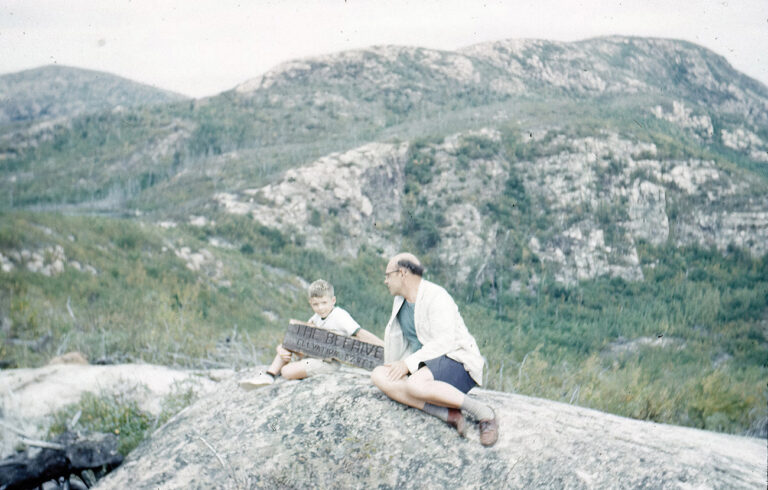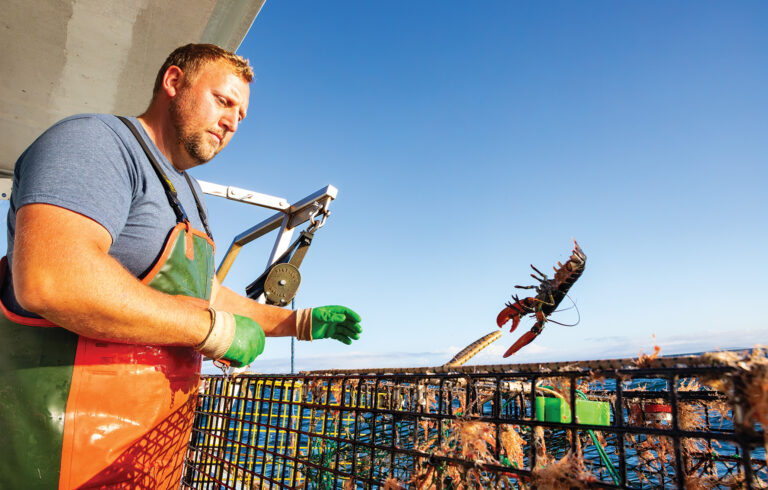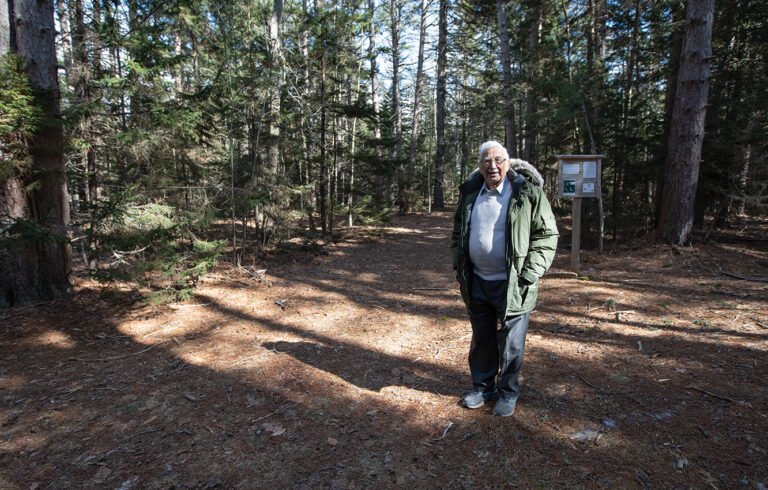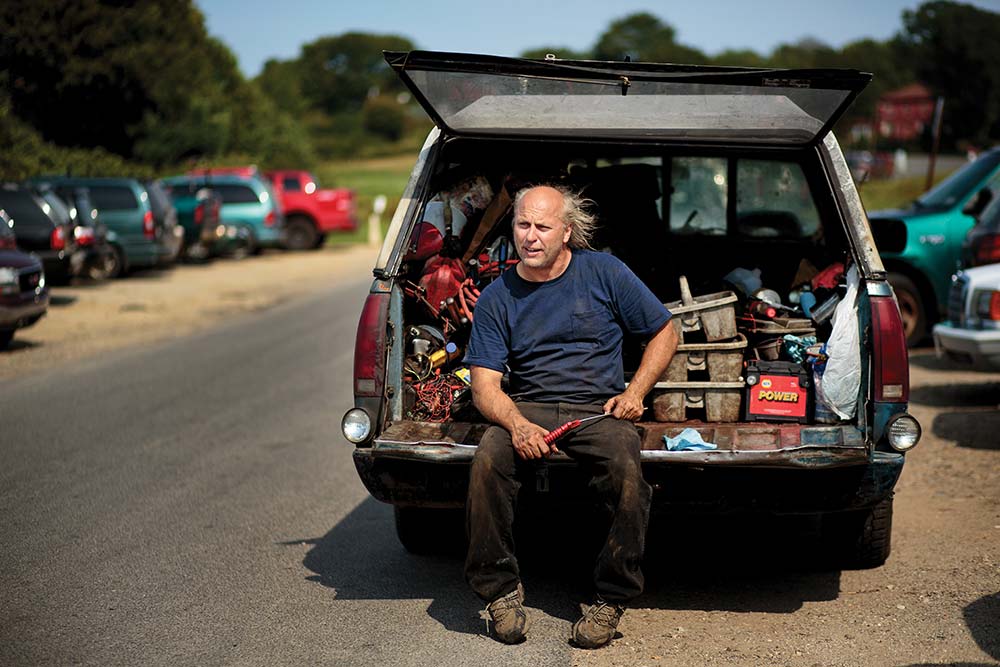
The median age of Maine islanders is far above the national average. As for the median age of most Maine island cars, well . . . it’s a good thing the odometers on many of them stopped working long ago.
Take Chebeague Island, for instance, home to a fleet of beaters held together with bungee cords, duct tape, baling twine, and a Hail Mary. The trunk opens only with a good kick to a sweet spot. The emergency brake is a wedge of firewood jammed under a back tire. And who needs side mirrors or windows?
Cars like these explain why Clint Jones is such a busy guy. At the moment, he’s prone under a rusty Subaru that has survived several generations of families, plus dogs, baggage, and countless lousy winters. And he’s joyously describing how brake lines work.
Jones is a short, sturdy man of 50 with flyaway gray hair who can talk a mile a minute to anyone about anything. On Chebeague, he occupies a rather exalted position: He’s the guy you call when your car breaks down. He arrives in his mobile “garage”: a battered pickup with tools and equipment stuffed into every nook and cranny.
Jones’s business is helped by a Maine law that exempts islands without state-maintained roads from regular vehicle inspection regulations (see box for list of islands).
“Island cars” are a breed unto themselves, rarely driven more than 30 miles an hour over short distances. With the nearest car dealer or full-service garage a barge trip away, the island mechanic ranks right up there with the island plumber and electrician as vital to a community’s survival.
But the clock is ticking for mechanics like Jones. Automotive technology may eventually outstrip their ability to work their magic. With the passage of time, even island clunkers may one day become too complex for them to fix.
Jones commutes from the mainland to the backyards and driveways of Chebeague. A native of Cumberland, he grew up on the water with his lobsterman father, and has fond memories of beach bonfires on the island during his high school years. Now, he makes the hour-long commute from Casco, where he lives with his partner Melissa Doughty, a Chebeague native.
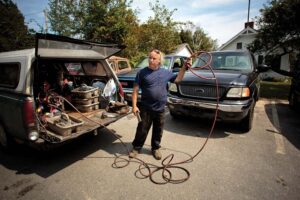
Trained as a marine mechanic, Jones attended Washington County Vocational Technical Institute in Eastport. He also gained skills as a welder, a talent he uses today, for he is also a well-regarded metal sculptor.
After finishing school, Jones worked as a mechanic at Chip’s Subaru in Portland for over ten years. He could smell the ocean from the shop, but was unable to spend time doing the things he loved, like fishing. After an injury, Jones decided to leave his job in Portland and strike out on his own. He wound up “turning wrenches” on Chebeague, where he’d spent time, and where Doughty’s parents still live.
Islanders welcomed Jones, and he’s grateful. Families including the Dyers helped him to establish himself over a decade ago by lending him tools and giving him workshop space to do his repairs. He recalls the time and energy it took to build a reputation, and how important it is to maintain it.
“You can shoot yourself in the foot out here very, very fast,” he says in his rapid-fire manner of speaking. “It’s different than on the mainland. You screw up a vehicle out here, and you’re gonna wear that.” Jones has tried to instill his work ethic in his son, Dustin, who also works on the island as a house painter. “You’ve gotta face your problems,” says Jones. “That’s called being a man. You can’t run from things on an island.”
Perhaps the best measure of Jones’s loyal customer base is the number of Subarus, which is his specialty, on Chebeague. One resident even had her Subaru barged fromthe mainland to the island so Jones could work on it, because “he’s just the best.”
It seems as though everybody has a story about this mechanic saving the day, whether it was fixing a fuel leak in the deep snows of January, crawling under a car in the dark with only a flashlight, or rebuilding an entire steering column because the key snapped off in the ignition.
“If you think you can resolve it, you take the job on, you’re committed to it, and you’ve got to stay on it until it’s done,” he says matter-of-factly. That attitude has made him an integral figure in island life. On a single day he fixes a generator, changes a tire, and examines a minivan with failing brakes. No job is too small.
With each repair also comes a detailed explanation of what went wrong, why it went wrong, what was done to fix it, and how to avoid a repeat. All part of the service call.
* * *
Jones usually arrives on Chebeague via the 10 a.m. ferry from Yarmouth and begins his day in his “office” with his “personal organizer.” In other words, he sits in the cab of his sky-blue 1988 GMC pickup and consults his yellow notepad, covered in names and numbers only he can decipher.
“I’m like a chess player. I always have a couple of projects going at once,” he says with a chuckle as he makes his first stop at Doughty’s Island Market to get a snack and a dose of the local island news. Today is Monday, and he will diagnose as many problems as he can so that he can order parts delivered from the mainland for use later in the week.
Soon enough, he’s headed toward the island’s west end, keeping his eyes peeled for an olive-green Range Rover with a squealing belt. As he pulls up, the Range Rover’s owner comes out to the driveway to talk. Jones pops open the hood and begins poking and prodding the machinery like a doctor performing a physical. He begins with the “commonsense” items first, explaining as he goes. In a matter of minutes, he’s diagnosed the noisy belt and detailed the repairs to the owner while gesturing excitedly with his screwdriver in hand. He orders new belts and prescribes fuel stabilizer for the Range Rover.
While the current problem may be fixed, the life span of an island car is hard to determine, he’s the first to admit.
“Electronics will get this car in the end,” he says with a tone of resignation. That’s something he does not have the resources to fix. It is also why he encourages people to buy older cars without computers and alarm systems.
Lacking access to the sophisticated diagnostic systems that are standard at dealers’ shops and larger mainland garages, freelance mechanics like Jones will eventually be driven out of the repair business. Until then, he spends his days keeping Chebeague’s aging island fleet running. There are challenges to working in the same place he likes to vacation, however—especially for someone as busy as Jones. On holidays, when he’d rather be relaxing with family on Deer Point, he’s often called out to do emergency repair work.
While he certainly has a knack for “turning wrenches,” Jones’s real talent is in his artist’s eye. His yellow notepad is full of sketches of Maine waterfront and natural scenes. He has adapted his welding training into a unique style, and his sculptures grace many Maine homes and yards, and can be found all over Chebeague. Before heading across on the boat each day, Jones usually spends an hour or two in his workshop in Cumberland, making art. While changing a tire, he talks about art brokers from New York who are interested in his work.
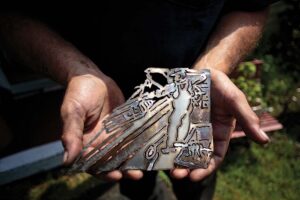
There’s artistry in auto mechanics, as well. He works on brakes at the Stone Pier, ignoring the traffic rumbling by while stretched out on a square of cardboard under the belly of a white minivan.
“Chebeague is the only place where I can be a mechanic and still be near the water,” Jones says. It’s a combination that makes him happy in life. “Watching a heron take off from the mudflats triggers ideas of beauty.”
Even if he sees it from beneath the hood of an aged station wagon.

